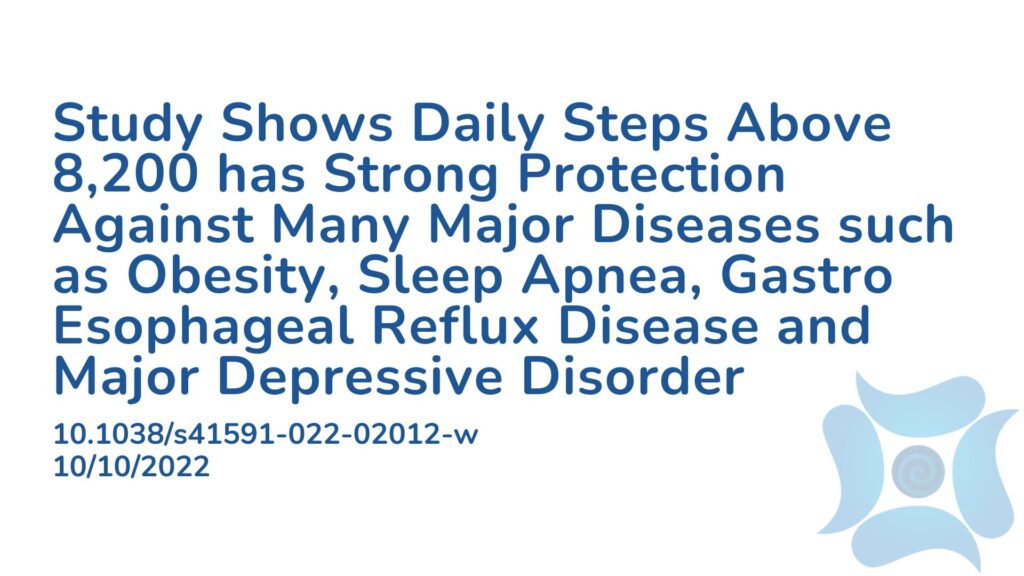Summary:The All of Us Research Program (AoURP) is a current initiative from the USA that is collecting health data regarding lifestyle, physical activity and overall incidence of disease in1,000,000 American’s. The idea is to build a health database, as well as collate information to inform future research and policy. Based on the data provided from the AoURP, the purpose of this study was to examine the associations between number of steps walked each day and the incidence of chronic diseases. Given that there is a rise in the use of FitBits or other personal step tracking devices, the researchers deem it vital to understand which number of steps per day correlate to a reduction in common diseases. Of the 329,070 participants enrolled in the AoURP, 214,206 people consented to share their electronic health data for the purpose of this study. Of those 214,206 individuals, 6,042 provided information directly relevant to number of steps walked per day, either noted on a FitBit or a different method. The average daily step count over a four year period was 7,731. The was a direct correlation between number of steps and obesity, sleep apnea, gastroesophageal reflux disease and major depressive disorder, showing that those who had a higher step count had less instance of these conditions. Those who noted daily steps above 8,200 had even more increased protection amongst all noted diseases.
Abstract:
The association between physical activity and human disease has not been examined using commercial devices linked to electronic health records. Using the electronic health records data from the All of Us Research Program, we show that step count volumes as captured by participants’ own Fitbit devices were associated with risk of chronic disease across the entire human phenome. Of the 6,042 participants included in the study, 73% were female, 84% were white and 71% had a college degree, and participants had a median age of 56.7 (interquartile range 41.5–67.6) years and body mass index of 28.1 (24.3–32.9) kg m–2. Participants walked a median of 7,731.3 (5,866.8–9,826.8) steps per day over the median activity monitoring period of 4.0 (2.2–5.6) years with a total of 5.9 million person-days of monitoring. The relationship between steps per day and incident disease was inverse and linear for obesity (n = 368), sleep apnea (n = 348), gastroesophageal reflux disease (n = 432) and major depressive disorder (n = 467), with values above 8,200 daily steps associated with protection from incident disease. The relationships with incident diabetes (n = 156) and hypertension (n = 482) were nonlinear with no further risk reduction above 8,000–9,000 steps. Although validation in a more diverse sample is needed, these findings provide a real-world evidence-base for clinical guidance regarding activity levels that are necessary to reduce disease risk.
Article Publication Date: 10/10/2022
DOI: 10.1038/s41591-022-02012-w




